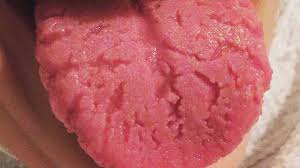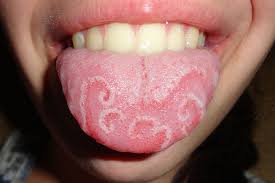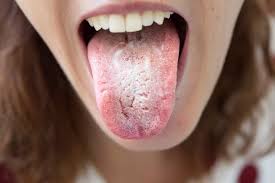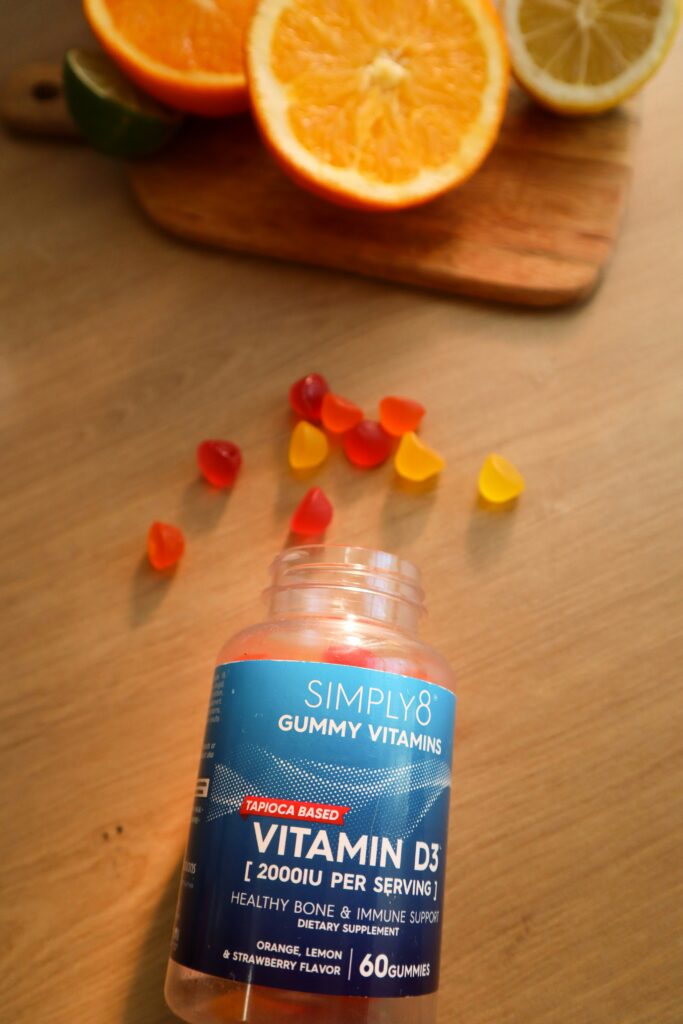
⚠️ Affiliate Disclaimer: This post may contain affiliate links, which means I may earn a small commission — at no extra cost to you — if you make a purchase through one of these links. I only recommend products or services I genuinely trust and believe can provide value. Thank you for supporting My Medical Muse!
7 Alarming Cracked Tongue Signs That Point to a Vitamin Deficiency
Have you ever looked in the mirror, stuck out your tongue, and noticed deep grooves or cracks running across its surface? It can be surprising and even a little unsettling. You might immediately wonder whether this is something harmless or a sign that something deeper is going on in your body.
A cracked tongue, medically referred to as a fissured tongue, can certainly look alarming. In many people, it causes no pain and does not interfere with daily life. However, this does not mean it should always be ignored. When tongue cracks are accompanied by burning, soreness, swelling, color changes, or other symptoms, they may be your body’s way of signaling an underlying problem.
One often overlooked cause is vitamin deficiency. The tongue is made up of rapidly renewing cells and has a high metabolic demand, which makes it particularly sensitive to nutritional imbalances. Deficiencies in certain vitamins and minerals can affect the tongue early, sometimes before more obvious symptoms appear elsewhere in the body.
In this article, we will explore the connection between a cracked tongue and vitamin deficiencies, review other medical conditions that can cause tongue fissures, and explain how to recognize when it is time to seek medical evaluation.
What Does a Cracked Tongue Look Like?

A cracked tongue, also known as a fissured tongue, is characterized by visible grooves or splits on the surface of the tongue. These fissures can appear on the top, the sides, or both, and their depth and pattern vary widely from person to person.
In mild cases, the cracks may be shallow and barely noticeable. In more pronounced cases, the fissures can be deep and numerous, giving the tongue a wrinkled, folded, or furrowed appearance. Some tongues develop a single prominent groove running from the back of the tongue to the tip, while others show multiple intersecting cracks that create a map-like or scaly pattern.
Possible features include:
A central groove extending from front to back
Several smaller cracks branching outward
A rough or uneven tongue surface
Mild burning or irritation, especially when eating spicy, salty, or acidic foods
For many people, a cracked tongue causes no pain at all. In others, food debris can collect in the fissures, leading to irritation, bad breath, or inflammation if oral hygiene is poor.
Cracks on the tongue may be present from birth, but they often become more noticeable with age, dehydration, illness, nutritional deficiencies, or other changes in health.
Is a Cracked Tongue Always a Cause for Concern?
Not necessarily. In a large number of people, a fissured tongue is harmless and does not indicate disease. It can simply be a normal anatomical variation, similar to having freckles, dimples, or a unique fingerprint. In these cases, no treatment is needed.
However, a cracked tongue deserves closer attention when it:
Appears suddenly
Becomes deeper or more widespread
Is associated with pain, burning, or swelling
Changes color, becoming unusually red, pale, or smooth
Develops a thick coating or signs of infection
When these changes occur, a cracked tongue may be a clue to an underlying condition. Common possibilities include nutritional deficiencies, oral infections, autoimmune disorders, hormonal imbalances, or systemic illnesses.
Can Vitamin Deficiencies Cause a Cracked Tongue?
Yes. Several vitamin deficiencies are well known to affect the tongue, leading to cracks, fissures, inflammation, pain, or swelling. The tongue is particularly sensitive to nutritional deficiencies because it has rapidly regenerating cells and a high metabolic demand. When key nutrients are lacking, tongue changes often appear early.
Below are some of the most important vitamin deficiencies linked to a cracked tongue.
1. Vitamin B2 (Riboflavin) Deficiency
Riboflavin plays a vital role in cellular repair, energy production, and the maintenance of healthy skin and mucous membranes, including the lining of the mouth and tongue.
When riboflavin levels are low, the tissues of the mouth can become fragile and inflamed.
Tongue symptoms
Red or swollen tongue
Painful cracks or fissures
Burning or stinging sensation
Dry or sore tongue
Other symptoms
Cracks at the corners of the mouth (angular cheilitis)
Sore throat
Sensitivity to light
Fatigue and weakness
Common causes
Poor dietary intake, especially low consumption of dairy products or leafy greens
Chronic alcohol use
Chronic diarrhea or malabsorption
Long-term use of oral contraceptives
2. Vitamin B3 (Niacin) Deficiency
Severe niacin deficiency leads to pellagra, a serious condition classically described by the “three Ds”: diarrhea, dermatitis, and dementia. The tongue is often one of the earliest sites affected.
Tongue symptoms
Painful cracks and fissures
Bright red or beefy-looking tongue
Burning or soreness
Other symptoms
Dark, scaly rashes on sun-exposed skin
Digestive problems such as diarrhea
Memory impairment, confusion, or mood changes
At-risk groups
People with chronic alcohol dependence
Individuals with digestive disorders such as Crohn’s disease
Those consuming very low-protein or nutritionally inadequate diets
3. Vitamin B6 (Pyridoxine) Deficiency
Vitamin B6 plays a critical role in neurotransmitter synthesis, immune function, and red blood cell production, because of its involvement in tissue repair and nerve health, deficiency often shows up in the mouth and tongue.
Tongue symptoms
Glossitis, where the tongue becomes inflamed, smooth, or cracked
Burning mouth sensation
Dry tongue with visible fissures
Other symptoms
Irritability or mood changes
Depression
Cracks at the corners of the mouth
Common causes
Inadequate dietary intake
Chronic alcohol use
Kidney disease
Certain medications, including isoniazid and hydralazine
4. Vitamin B12 Deficiency
Vitamin B12 deficiency is one of the most common and clinically significant causes of tongue abnormalities. The tongue lining depends on B12 for normal cell turnover and nerve integrity.
Tongue symptoms
Smooth, shiny tongue, known as atrophic glossitis
Painful cracks or fissures
Burning or tingling sensation
Pale or deep red tongue
Other symptoms
Persistent fatigue
Numbness or tingling in the hands and feet
Memory problems or difficulty concentrating
Irritability or mood changes
Shortness of breath
Why it matters
Untreated vitamin B12 deficiency can lead to permanent nerve damage and cognitive impairment. Tongue changes may appear before blood abnormalities or neurological symptoms become obvious.
Who is at risk
Older adults
Vegans and strict vegetarians
People with stomach or intestinal disorders
Individuals taking long-term acid-suppressing medications
5. Iron Deficiency
Iron is essential for oxygen transport, immune defense, and the maintenance of healthy mucous membranes, including those of the tongue.
Tongue symptoms
Cracks or fissures
Glossitis, with a smooth or inflamed appearance
Pale coloration
Burning or soreness
Other symptoms
Chronic fatigue
Brittle or spoon-shaped nails
Hair thinning or hair loss
Cold hands and feet
Common causes
Heavy or prolonged menstrual bleeding
Inadequate dietary iron intake
Chronic blood loss, such as from ulcers or hemorrhoids
Poor iron absorption, commonly seen in conditions like celiac disease
What Else Can Cause a Cracked Tongue?
Not all fissured tongues are caused by vitamin or mineral deficiencies. Several other conditions can produce a similar appearance.
1. Geographic Tongue
Geographic tongue is a benign condition where smooth, red patches appear on the tongue, often bordered by slightly raised edges. Fissures may be present along the borders, giving the tongue an uneven appearance.
Symptoms
Map-like red patches that change location over time
Mild soreness or burning
Symptoms that flare and settle intermittently
Despite its appearance, geographic tongue is harmless and does not increase cancer risk.
2. Dehydration or Dry Mouth
Reduced saliva production can cause the tongue to appear dry, rough, and cracked.
Common causes
Inadequate fluid intake
Mouth breathing, especially during sleep
Side effects of medications such as antihistamines, antidepressants, or diuretics
4. Oral Thrush (Candidiasis)
Oral thrush is a fungal infection caused by Candida species. It can lead to tongue soreness, cracks, and a coated appearance.
Typical features
White or creamy patches on the tongue or inner cheeks
Redness or cracking at the tongue surface
Burning or discomfort
Higher risk groups
People with weakened immune systems
Individuals with diabetes
Denture wearers
Those who recently used antibiotics
Sjögren’s Syndrome
Sjögren’s syndrome is an autoimmune disorder that damages the salivary and tear glands, leading to persistent dryness.
Tongue and mouth effects
Chronic dry mouth
Cracked or fissured tongue
Increased risk of oral infections
Down Syndrome
People with Down syndrome commonly have a fissured tongue due to natural anatomical and developmental differences. In this context, a cracked tongue is not a sign of deficiency or disease.
Read More: Down Syndrome
How to Know If Your Cracked Tongue Is From Vitamin Deficiency
A cracked tongue becomes more concerning when it appears alongside other signs of nutritional imbalance. While appearance alone cannot confirm a deficiency, certain patterns strongly suggest that vitamins or minerals may be involved.
Your tongue fissures are more likely related to a vitamin deficiency if you notice several of the following:
A burning, sore, or tender tongue
A tongue that appears unusually red, smooth, or pale
Ongoing fatigue, weakness, or low energy
Numbness or tingling in the hands or feet
A restrictive eating pattern such as a vegan, low-protein, or highly processed diet
Digestive conditions that impair nutrient absorption, including IBS or celiac disease
Long-term use of medications such as antacids, proton pump inhibitors, or diuretics
Other physical signs of deficiency, including hair loss, brittle nails, skin rashes, or frequent mouth sores
When several of these symptoms occur together, the likelihood of an underlying nutrient deficiency increases. In such cases, blood testing is the most reliable way to identify the cause.
A targeted nutrient panel can assess levels of vitamin B12, folate, iron, and related markers, allowing for accurate diagnosis and appropriate treatment.
How to Treat a Cracked Tongue Caused by Vitamin Deficiency
Treatment focuses on identifying the specific deficiency and correcting it. Guessing or self-supplementing without testing can delay proper care or mask serious conditions.
1. Get Proper Testing
Visit a healthcare provider and request a focused evaluation that may include:
Complete blood count to assess anemia and red blood cell health
Vitamin B12, B6, and folate levels
Iron studies, including serum iron, ferritin, and transferrin saturation
Homocysteine levels, which can help detect functional vitamin B12 deficiency even when blood levels appear borderline
These tests provide a clear picture of nutritional status and guide safe treatment.
2. Adjust Your Diet
Once a deficiency is identified or suspected, improving dietary intake is essential.
Key food sources include:
Vitamin B2: eggs, dairy products, lean meats, almonds, spinach
Vitamin B3: chicken, tuna, peanuts, brown rice
Vitamin B6: salmon, bananas, potatoes, fortified cereals
Vitamin B12: meat, eggs, dairy products, fortified plant-based milks for vegans
Iron: red meat, lentils, tofu, pumpkin seeds, spinach
Consistent intake matters more than short-term changes. Nutrient deficiencies develop over time and require sustained correction.
3. Consider Supplements When Necessary
If laboratory testing confirms a deficiency or if symptoms are significant, supplementation may be required.
Common medical recommendations include:
vitamins B-complex to address multiple B vitamin deficiencies
Iron supplements, taken only under medical supervision to avoid toxicity
Sublingual vitamin B12 or intramuscular B12 injections for individuals with poor absorption
Supplements should be used as targeted therapy, not as a substitute for diagnosis.
4. Address Hydration and Dry Mouth
Dehydration and reduced saliva can worsen tongue fissures, even when nutrition is adequate.
Helpful measures include:
Drinking sufficient water throughout the day
Chewing sugar-free gum to stimulate saliva production
Using a humidifier at night, especially if you breathe through your mouth
5. Practice Gentle Oral Care
Good oral hygiene helps prevent irritation and secondary infections.
Brush your tongue gently to remove debris from fissures
Avoid spicy, acidic, or very hot foods if burning is present
Use mild, alcohol-free mouthwash to reduce dryness
When to See a Doctor
Medical evaluation is important if:
Tongue cracks are painful, deepening, or spreading
Burning, swelling, or color changes develop
Fatigue, numbness, or neurological symptoms appear
You experience unexplained weight loss or appetite changes
You follow a restrictive diet or have a chronic medical condition that increases deficiency risk
Early diagnosis and treatment of vitamin deficiencies can prevent serious and sometimes permanent complications, particularly with vitamin B12 and iron. When the tongue changes, it is often an early warning sign that should not be ignored.
Final Thoughts: Your Tongue Tells a Story
A cracked tongue is easy to dismiss, but it should not be ignored. In many cases, it is one of the earliest visible signs that your body is lacking essential nutrients, particularly B-complex vitamins or iron.
These deficiencies often develop quietly and progress long before serious symptoms appear. The tongue, with its high turnover of cells, is often the first place where the damage becomes visible. What looks like a minor surface change may reflect deeper issues involving nerve health, blood production, or nutrient absorption.
The good news is that most causes are treatable, with proper blood testing, targeted dietary changes, and appropriate supplementation, tongue changes related to vitamin deficiency can improve and, in many cases, fully resolve.
If your tongue looks different, feels sore, or burns, do not brush it off as cosmetic. It may be your body’s early warning system doing exactly what it is meant to do. Pay attention, get checked, and act early.
👩⚕️ Need Personalized Health Advice?
Get expert guidance tailored to your unique health concerns through MuseCare Consult. Our licensed doctors are here to help you understand your symptoms, medications, and lab results—confidentially and affordably.
👉 Book a MuseCare Consult NowRelated Post:
- What Your Tongue Can Reveal About Vitamin Deficiencies
- White Coating on Tongue and Gut Health: 12 Hidden Gut Issues You Shouldn’t Ignore
- 6 Tongue Signs That Could Mean a Vitamin Deficiency
- 7 Critical Facts You Must Know: How to Choose the Right Multivitamin
- 10 Surprising Reasons Why Your Tongue Burns or Tingles Randomly
Dr. Ijasusi Bamidele, MBBS (Binzhou Medical University, China), is a medical doctor with 5 years of clinical experience and founder of MyMedicalMuse.com, a subsidiary of Delimann Limited. As a health content writer for audiences in the USA, Canada, and Europe, Dr. Ijasusi helps readers understand complex health conditions, recognize why they have certain symptoms, and apply practical lifestyle modifications to improve well-being




